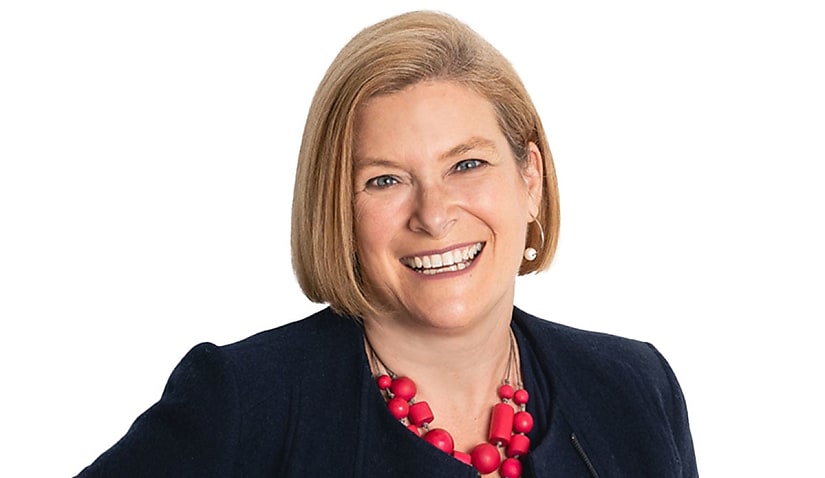Why mediation ‘is on the rise’
Despite mediation still being an emerging sector within the profession, this mediation and negotiation expert said it’s likely to become more widely used moving forward.

Nicole Davidson is a commercial mediator and negotiation adviser at Melbourne-based Nicole Davidson Negotiation and recently won the Mediator/Arbitrator of the Year category at the 2022 Australian Law Awards — the first time the category has ever been run.
To continue reading the rest of this article, please log in.
Create free account to get unlimited news articles and more!
Mediation is quickly becoming a valuable skill in the legal industry, but speaking on The Lawyers Weekly Show recently, Ms Davidson said that because many lawyers are statistically competitive and type A, many are not as open to mediation and negotiation as they can or should be.
“There’s that aspect of ego, even if it’s very subconscious. I think one of the other challenges that lawyers have to combat is when you think about litigation as a career, many people in the litigation space got into litigation because they love the cut and the thrust of the intellectual arguments that come through from interpreting the law and managing the strategy of the litigation itself,” she said.
“If you take your cases through to mediation, particularly at an early stage, and they settle as a litigation lawyer, you are perhaps not getting a lot of job satisfaction because the part of your job you love the most has now been resolved because we’ve just come to an amicable commercial agreement. And I think that’s a real challenge for how we see things, but that brings up the question of whose interests we are meant to be following. And is it in the client’s best interest to have an adversarial battle when the possibility of coming to mediation is there?”
In addition to adversarial personalities, “getting the buy-in” from the legal profession is one of the key issues in the growth of mediation as a practice area in Australia.
“What we’re seeing overseas already is some jurisdictions are starting to make mediation mandatory as a pre-litigation step in a wider variety of circumstances, and what we’re seeing. So, I actually believe that for mediation to really pick up, there needs to be some sort of change like that. We’ve had mediation on the agenda for, well, at least 30 years now, because it was being talked about when I was an article clerk, and it’s really developing quite slowly,” Ms Davidson added.
“Interestingly, there’s also a lot of talk at the moment and a review of the National Mediation Accreditation Standards. I’m not sure that there’s a lot of lawyers even aware of those standards, but I think making sure that we have quality mediators who are able to do the job well is important for the industry as well.”
Despite mediation being an emerging space in the profession, there are a number of trends causing it to become more and more mainstream, according to Ms Davidson.
“I think it is on the rise. And I think schemes that do require mediation early on are helping that. I think also the fact that mediation can be done remotely and it’s a bit less hassle for everybody. If you’ve got a mediation, you’ve got lots of parties, and the lawyers and everybody needs to be together physically in a room. That’s quite hard to organise. Organising everyone to be on a Zoom call for half a day or a day is much more practical, but also the backlogs in the court are contributing to the ability for people to step in and mediate to resolve things,” she explained.
“Just last week, there was a conference in Singapore; so there’s an international mediation treaty for the enforcement of settlement agreements, which is colloquially known as the Singapore convention. And there was a discussion there, and it was interesting, talking about best practices for mediators and the need to be more accountable for the standards that we’ve had. But what was really fascinating was that Australia was being talked about as one of the leaders in that space, which was really great to hear.”
And moving forward, there are a number of opportunities for those in the mediation space, Ms Davidson concluded.
“I think it’ll be interesting to see, firstly, if the courts are going to move towards more direction to mediation, and most cases will get directed to mediation at some point, but whether they’ll start moving that to an earlier part in the proceedings, will be interesting to see. The other thing, and one thing that I’m quite actively looking at doing, is how do we get businesses to understand what mediation is and the power of mediation? Because at the moment, business will come to their lawyers. The lawyers will advise them.
“If businesses are more aware of mediation, then there’ll be more pressure on the lawyers to actually mediate and get to those commercial outcomes. And there is a real role for lawyers still in that process, but they need to be aware of the fact that clients will start to demand different things to get outcomes that are commercially sensible,” she said.
“I’d like to see a sort of system where mediation becomes absolutely a norm. Whereas, perhaps some people who are currently litigation lawyers may end up as mediators, and it’s something that people can choose as a career from the beginning, rather than something that might come along their way down the track. I’d like to see it as a real standalone profession that has a much broader usage than what we are currently using it for.”
The transcript of this podcast episode was slightly edited for publishing purposes. To listen to the full conversation with Nicole Davidson, click below:






